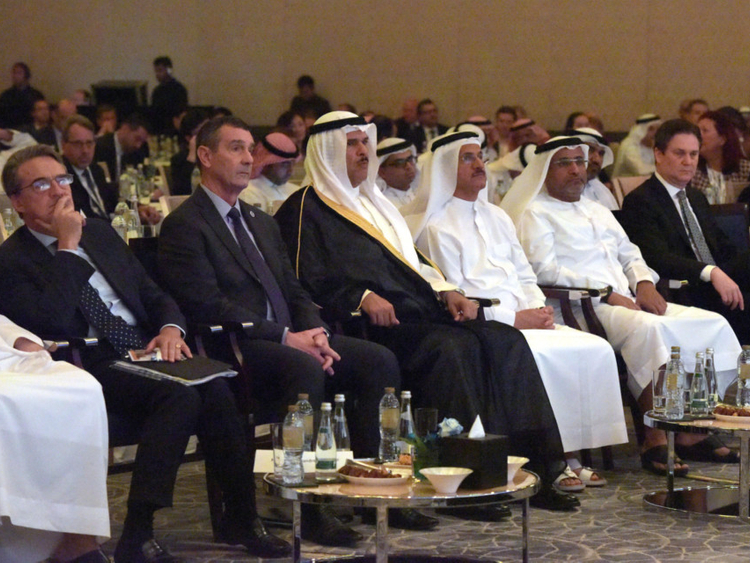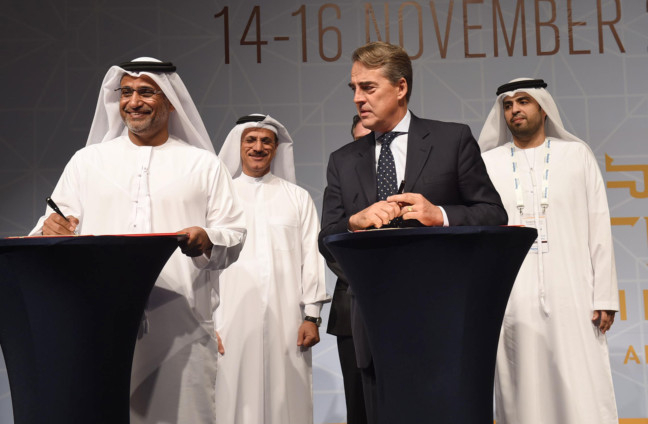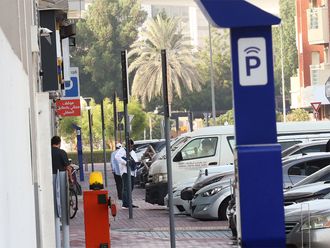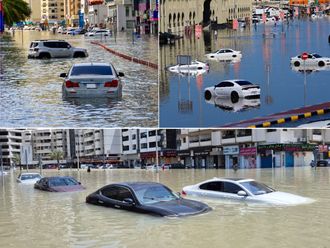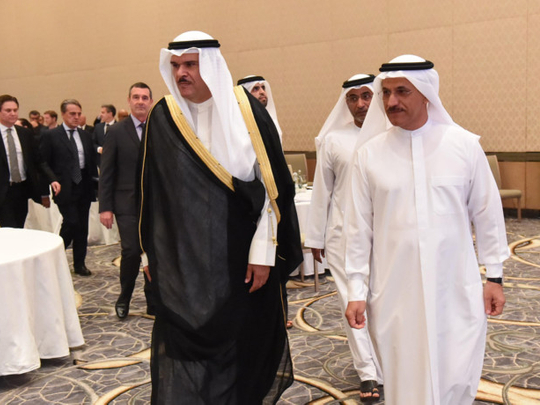
Abu Dhabi: The UAE continues to be a main hub for international air travel, with 124 million passengers passing through the country’s airports in 2016, said a high-ranking official at a major aviation security conference on Tuesday.
Held in Abu Dhabi, the 26th AVSEC World Conference brought together delegates from around the world to discuss the latest challenges the aviation sector faces, particularly when it comes to security and keeping passengers safe.
“In the year 2016, the number of passengers served by UAE airports was more than 124 million passengers, the number of air traffic movements has [also] increased to more than 922,000, and the fleet size of the UAE national carriers stood at 473 aircraft,” said Sultan Bin Saeed Al Mansouri, Minister of Economy and Chairman of the UAE General Civil Airport Authority.
“The figures mentioned … are a testimony to the pivotal role air transportation plays in the development of the national economy,” he added.
Al Mansouri highlighted how the UAE’s growing aviation sector was helping to diversify its economy.
“The great level of attention and care the UAE government is paying to the civil aviation sector is a translation of the vision of the founder of this country, the late Shaikh Zayed Bin Sultan Al Nahyan, and his brothers, and their recognition from the very beginning of this vital sector as one of the most important enablers for the prosperity of the nation … [and turning the UAE] into a major international trade and tourism centre.
“We put the sustainability of this sector locally, regionally and internationally among our top priorities,” he added.
Al Mansouri acknowledged the security threats posed to the aviation industry, but said the UAE was prepared to deal with them.
“We all know that due to its technical nature and remarkable impact on nations livelihood and reputation of states, the civil aviation sector has become an attractive target of acts of unlawful interference.
“The UAE has been well aware of existing and emerging threats and in this regard has established a comprehensive legal framework and robust aviation security system,” he added.
Peter Baumgartner, chief executive officer of Etihad Airways, said that airlines around the world were going through their most challenging period.
“The past several years have possibly been the most turbulent in the history of aviation. Fares have collapsed globally … Political and security developments in certain markets [have created more challenges], [and] drops in oil prices.
“Carriers in our region … [saw] a 28 per cent reduction in average fares since 2005. This downward trend is only expected to continue for some time,” he added.
“These pressures must never be at the cost of the safety and security of our passengers,” he went on to warn, emphasising that passenger safety remained the number one priority.
Highlighting some of the emerging threats to the aviation industry, Baumgartner said that one of the most pressing dangers was related to cyber attacks.
“Cyber security needs to be a top priority for the airline industry, the emergence of new technologies … heightens the threat of hackers being able to access an aircraft from a remote location, as well as hacking into the many navigation related systems, including booking, passport systems, [and] operational systems, causing potential major disruptions.”
For his part, Alexandre de Juniac, director-general and chief executive officer, International Air Transport Association, said he had full confidence in the safety and security measures of the UAE’s national carriers.
“We haven’t spotted any problems [with these airliners], they are doing their job, and usually they are often on the cutting edge of technology and on the front line of being the best in class, so we are not worried.
“Nothing is 100 per cent proven, but quite frankly the Gulf carriers are very reliant,” he added.
De Juniac also called for greater cooperation between governments and airliners to be able to handle emerging security threats.
“Governments and the industry are partners in aviation security. Airlines have operational know-how. Governments have the financial and intelligence resources. We have to put them together effectively in a continuous dialogue focused on improving security,” he said.
“Our common defence is stronger when governments and industry work together. If we can avoid long-term extraterritorial measures, focus on global standards, share information and develop technology efficiently, our hand is strengthened even further,” he added.


